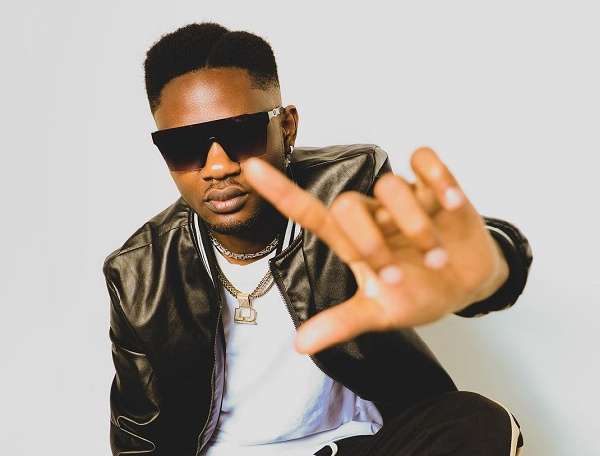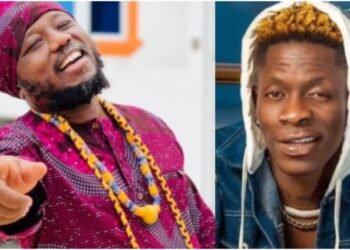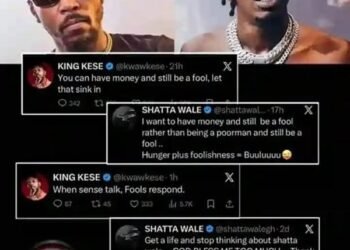In the vibrant tapestry of global hip-hop, English rappers have made significant contributions to the genre, yet their recognition in various regions, including Ghana, remains limited.
While Ghanaian hip-hop has a rich history and many talented artists, the country’s lack of awareness and appreciation for English rappers raises questions about cultural exchange, media representation, and the evolving nature of global music consumption.
Despite winning the title of Best Rapper at the 2023 Telecel Ghana Music Awards, Lyrical Joe has voiced concerns about the lack of recognition for English-speaking rappers in the Ghana music industry.
Lyrical Joe expressed frustration with the industry’s bias, which he believes has led to English rappers being overshadowed by their counterparts who rap in local languages, particularly Twi.
“One of the biggest hurdles I’ve faced is getting people to embrace fresh talent and accept the evolution of our music scene. We’re no longer limited to one style. Now, we have artists rapping exclusively in English, others in Twi, and everyone bringing their unique flavor to the table.”
Lyrical Joe
Despite the growth of the Ghanaian hip-hop scene, which includes artists like Sarkodie, M.anifest, and Kwesi Arthur, there remains a noticeable gap in the recognition of English rappers within the country.
One of the primary reasons English rappers struggle to gain recognition in Ghana is the cultural and linguistic differences between the two regions.
While English is widely spoken in Ghana due to its colonial history, the local dialects and languages, such as Twi, Ga, and Ewe, play a significant role in everyday communication and cultural expression.
Ghanaian hip-hop artists often incorporate local languages and cultural references into their music, making it more relatable to the local audience.
In contrast, English rappers use slang, idioms, and cultural references that resonate more with Western audiences.
This creates a barrier for Ghanaian listeners who find it challenging to connect with the themes and narratives presented in English rap.

As a result, the music does not receive the attention it deserves, leading to a lack of awareness about the talents and contributions of English rappers.
The media plays a crucial role in shaping public perception and awareness of music genres. In Ghana, local media outlets often prioritize homegrown talent, focusing on Ghanaian artists and their contributions to the hip-hop scene.
While this is essential for promoting local culture, it inadvertently overshadows international artists, including English rappers.
Moreover, the global music industry is heavily influenced by trends and popular culture, often favoring American artists over their international counterparts.
This trend extends to Ghana, where American hip-hop dominates playlists and radio stations, leaving little room for English rappers to gain recognition.
The result is a music landscape that overlooks the innovative contributions of English artists, limiting their exposure to Ghanaian audiences.
Impact of Streaming, Social Media on English Rappers

In recent years, the rise of streaming platforms and social media has transformed how music is consumed and shared.
While these platforms have provided opportunities for English rappers to reach global audiences, including Ghana, the challenge remains in how they are marketed and promoted.
Many Ghanaian listeners rely on local playlists and recommendations, which do not feature English rappers as prominently as they do Ghanaian artists.
Furthermore, social media algorithms often favor content that is already popular, making it difficult for lesser-known English rappers to break through the noise.
This creates a cycle where English rappers remain underappreciated, despite their talent and potential to connect with Ghanaian audiences.
Lyrical Joe acknowledged the difficulty in gaining recognition, which has pushed some artists to follow popular trends.
However, he remains hopeful, noting that audiences are gradually warming up to this new wave of rap music. “Thankfully, people have finally started to accept this diversity,” he added.
Despite the challenges, there is immense potential for collaboration and cultural exchange between English rappers and Ghanaian artists.
The fusion of different styles, languages, and cultural influences can lead to innovative and exciting music that resonates with diverse audiences.
Collaborations between English and Ghanaian artists could serve as a bridge, allowing for a greater appreciation of English rap within Ghana.
Artists like Stormzy, Dave, and Little Simz, known for their impactful lyrics and unique sounds, could find common ground with Ghanaian rappers, creating music that reflects a blend of experiences and narratives.

Additionally, initiatives that promote cultural exchange, such as music festivals and workshops, could foster greater awareness and appreciation for English rap in Ghana.
By bringing together artists from different backgrounds, these initiatives can help break down barriers and create a more inclusive music landscape.
The underappreciation of English rappers in Ghana highlights the complexities of cultural exchange in the global music industry.
While Ghanaian hip-hop continues to thrive, the lack of recognition for English artists underscores the need for greater awareness and appreciation of diverse musical voices.
Embracing the rich tapestry of global hip-hop can lead to a more inclusive and vibrant music scene that celebrates the talents of artists from all backgrounds.
As the world becomes increasingly interconnected, it is essential to recognize and appreciate the contributions of English rappers, not just in Ghana but across the globe.
READ ALSO: Dr Hakim Downplays USAID Funding Cut, Urges Economic Reform























